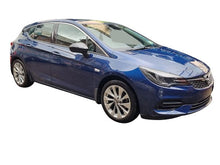
Unlocking Tomorrow: Exploring the Future of Car Ownership with Subscription Models and Alternatives
As we step into a new era of transportation, the traditional model of car ownership is being challenged like never before. The rise of subscription models and alternative forms of vehicle access are reshaping the automotive landscape. With a generation that values flexibility and experience over attachment, the future of car ownership is poised to transform drastically. In this article, we'll explore these innovations and what they mean for consumers and the industry alike.
The Shift from Ownership to Access
The concept of ownership has long been synonymous with pride and freedom, especially when it comes to vehicles. However, newer generations, often referred to as Millennials and Gen Z, are driving a paradigm shift. They tend to prioritize convenience, cost-effectiveness, and sustainability over traditional ownership. This generational change is at the forefront of the growing vehicle subscription market, designed to cater to these new priorities.
What is a Vehicle Subscription Model?
A vehicle subscription model provides users with access to a vehicle for a monthly fee, which can include insurance, maintenance, and roadside assistance. It offers a more flexible approach to driving without the long-term commitment of buying a car or the short-term nature of car rentals.
- Flexibility: Subscribers can change vehicles as their needs evolve.
- All-Inclusive Pricing: Monthly fees cover most expenses, minimizing unforeseen costs.
- Variety: Users can experience different makes and models, allowing them to find the perfect fit for their lifestyle.
The Rise of Alternatives
While subscription models are gaining traction, car ownership alternatives such as ridesharing, carpooling, and public transportation are becoming increasingly popular. Each of these options addresses the need for mobility without the burdens associated with traditional vehicle ownership.
Ridesharing: A Convenient Companion
Ridesharing services bring together drivers and passengers for short-term travel needs. Companies like Uber and Lyft have made it easier than ever for individuals to get around without the constraints of ownership.
- Cost-Effective: Users only pay for the rides they take, eliminating maintenance costs associated with personal vehicles.
- Flexibility: Ridesharing adapts to users’ schedules, allowing transportation when needed.
- Environmental Impact: Reduced vehicle production lowers carbon footprints and promotes sustainability.
Carpooling: Community-Based Mobility
Carpooling is a great way to share rides with others going in the same direction. It not only cuts down driving costs but also reduces the number of cars on the road, leading to less congestion and lower emissions.
- Cost Sharing: Passengers can split fuel and toll expenses, making it economical.
- Social Interaction: Carpooling can foster connections and a sense of community among commuters.
- Decreased Traffic: Fewer cars on the road leads to less congestion, improving overall traffic flow.
The Environmental Angle
With increasing awareness about climate change and environmental issues, many individuals are seeking eco-friendly transport options. Car subscriptions and alternatives like ridesharing can significantly reduce individual carbon footprints.
Reducing Carbon Emissions
The transportation sector contributes significantly to greenhouse gas emissions. By opting for subscription models or ridesharing, users can diminish their carbon impact.
- Lower Manufacturing Demand: A reduced number of vehicles being produced minimizes pollution from manufacturing processes.
- Encouraging Electric Vehicles: Many subscription services are focusing on electric or hybrid models.
- Shared Resources: Utilizing one vehicle for multiple users decreases overall resource consumption.
The Financial Perspective
The economics of car ownership are evolving. With rising prices of vehicles, insurance, and maintenance, many consumers are reevaluating how they allocate their transportation budgets.
Cost Comparison: Subscription vs. Ownership
When comparing costs, it's essential to factor in all aspects of vehicle ownership, including depreciation, insurance, and maintenance. Subscription models often prove to be more financially viable than traditional ownership, especially for those who drive infrequently.
- Depreciation Costs: Cars lose value quickly; subscription models eliminate this concern.
- Predictable Payments: Monthly subscriptions provide predictable budgeting compared to the unpredictability of maintenance costs.
- Insurance Savings: Many subscriptions include insurance in their packages, addressing a significant ownership cost.
The Convenience Factor
Convenience is a core driver for the shift toward vehicle access rather than ownership. Subscription services often allow users to manage their accounts through apps, providing instant access to a vehicle when needed.
The Power of Technology
Advancements in technology are enhancing the user experience in subscription services. From mobile apps to seamless payment systems, technology streamlines access to vehicles, making ownership seem outdated.
- Easy Access: Users can book their vehicles through apps, making transportation on demand more accessible.
- Real-Time Updates: Notifications about vehicle availability and conditions ensure users are always informed.
- User-Friendly Platforms: Enhanced digital platforms simplify subscription management.
Reimagining Urban Mobility
Urban areas are evolving, and with more people flocking to cities, the model of transportation must adapt. Vehicle subscriptions, car-sharing, and alternative transportation methods are integral to this evolution.
The Future of City Planning
As cities strive to reduce congestion and environmental impacts, integrating vehicle access models and promoting sustainable transport options are crucial. Cities are beginning to invest in infrastructure to support these initiatives.
- Dedicated Carpool Lanes: To encourage carpooling, cities are implementing dedicated lanes, improving commuting times.
- Electric Vehicle Charging Stations: Expanding charging infrastructure supports electric vehicle subscriptions.
- Public Transit Collaborations: Integrating public transit systems with ridesharing provides seamless travel solutions.
The Road Ahead
The future of car ownership is undeniably exciting, presenting a shift towards more flexible, economically efficient, and environmentally sustainable solutions. As we embrace technology and new models of vehicle access, consumers can look forward to a landscape that prioritizes convenience and sustainability.
Challenges and Considerations
While subscription models and alternative vehicle access options have numerous advantages, they also come with their own sets of challenges. Consumer confidence, market saturation, and technology reliance are among the hurdles that still need to be addressed.
- Market Education: Many consumers remain unaware of subscription models, requiring education and awareness campaigns.
- Potential for Over-Saturation: With several new players entering the market, competition could lead to consolidation.
- Tech Reliability: Dependence on technology could pose risks, chiefly when systems malfunction or experience outages.
Ready for the Future? Your Move!
As today's market begins to prioritize flexibility and sustainability, the prospect of vehicle ownership is changing. The exploration of subscription models presents an exciting avenue for consumers who value convenience without the burden of commitment. If you're contemplating your next transportation choice, consider these alternatives to traditional automotive ownership. The key takeaway is that the automotive world is shifting, and you can be part of this transformative journey.
Embrace the future, and consider your options. With the right approach, you can drive into a more sustainable and flexible tomorrow without the constraints of conventional car ownership.





















